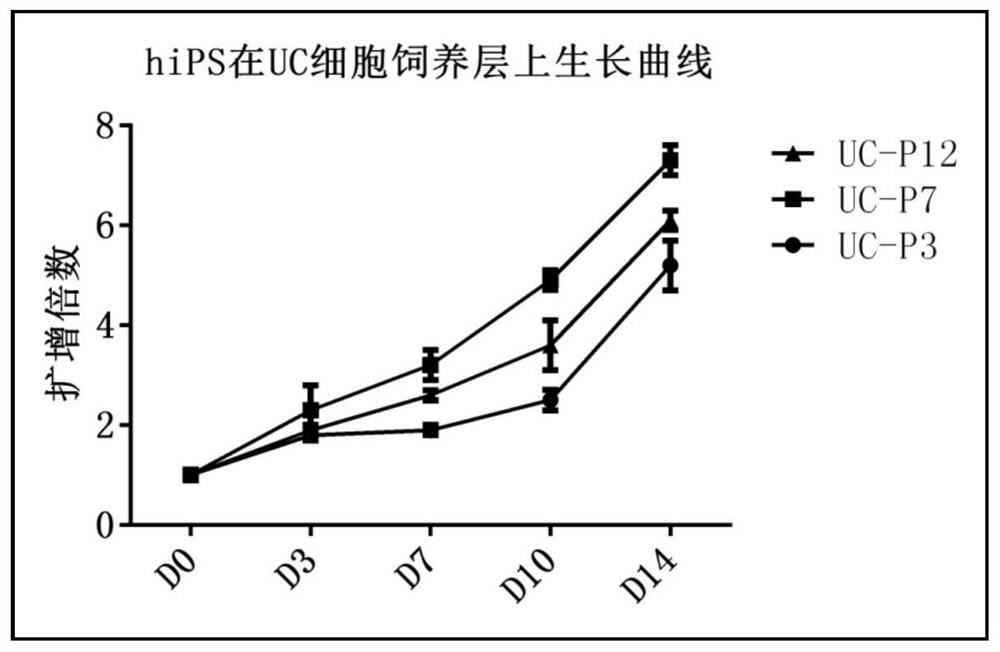A method for culturing induced pluripotent stem cells using human urine cells as a feeder layer
A technology of pluripotent stem cells and feeder layer cells, which is applied in the field of culturing induced pluripotent stem cells, can solve the problems of difficulty in obtaining cells and heterologous contamination of human induced pluripotent stem cells, and achieve the effect of good growth state.
- Summary
- Abstract
- Description
- Claims
- Application Information
AI Technical Summary
Problems solved by technology
Method used
Image
Examples
Embodiment Construction
[0016]Hereinafter, the present invention will be further described with reference to the drawings and specific embodiments to better understand the present invention. The materials and reagents used in the examples can be obtained from commercial sources unless otherwise specified. Example Urine cells are used as feeder layers to cultivate human induced pluripotent stem cells
[0017]The present invention provides a method for culturing human induced pluripotent stem cells by using human urine cells to make feeder layers. For details, seefigure 1 .
[0018]1. Separation and culture, cryopreservation and recovery of urine cells
[0019]1) Separation and culture of urine cells. Transfer fresh urine cells to a 50mL centrifuge tube with 5mL double antibody (operate under aseptic conditions to avoid contamination), centrifuge at 400g for 10 minutes, discard the supernatant, and leave 1mL on top Supernatant, resuspend cells, transfer all cells to the same 50mL centrifuge tube, add 10mL PBS to wash...
PUM
 Login to View More
Login to View More Abstract
Description
Claims
Application Information
 Login to View More
Login to View More - R&D
- Intellectual Property
- Life Sciences
- Materials
- Tech Scout
- Unparalleled Data Quality
- Higher Quality Content
- 60% Fewer Hallucinations
Browse by: Latest US Patents, China's latest patents, Technical Efficacy Thesaurus, Application Domain, Technology Topic, Popular Technical Reports.
© 2025 PatSnap. All rights reserved.Legal|Privacy policy|Modern Slavery Act Transparency Statement|Sitemap|About US| Contact US: help@patsnap.com



